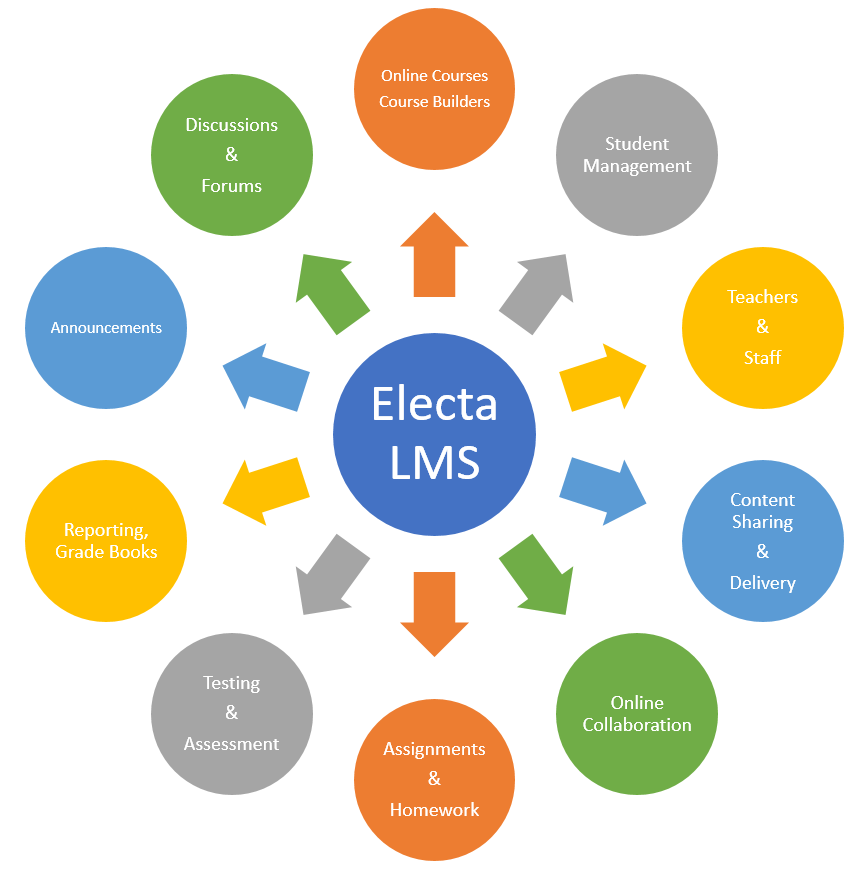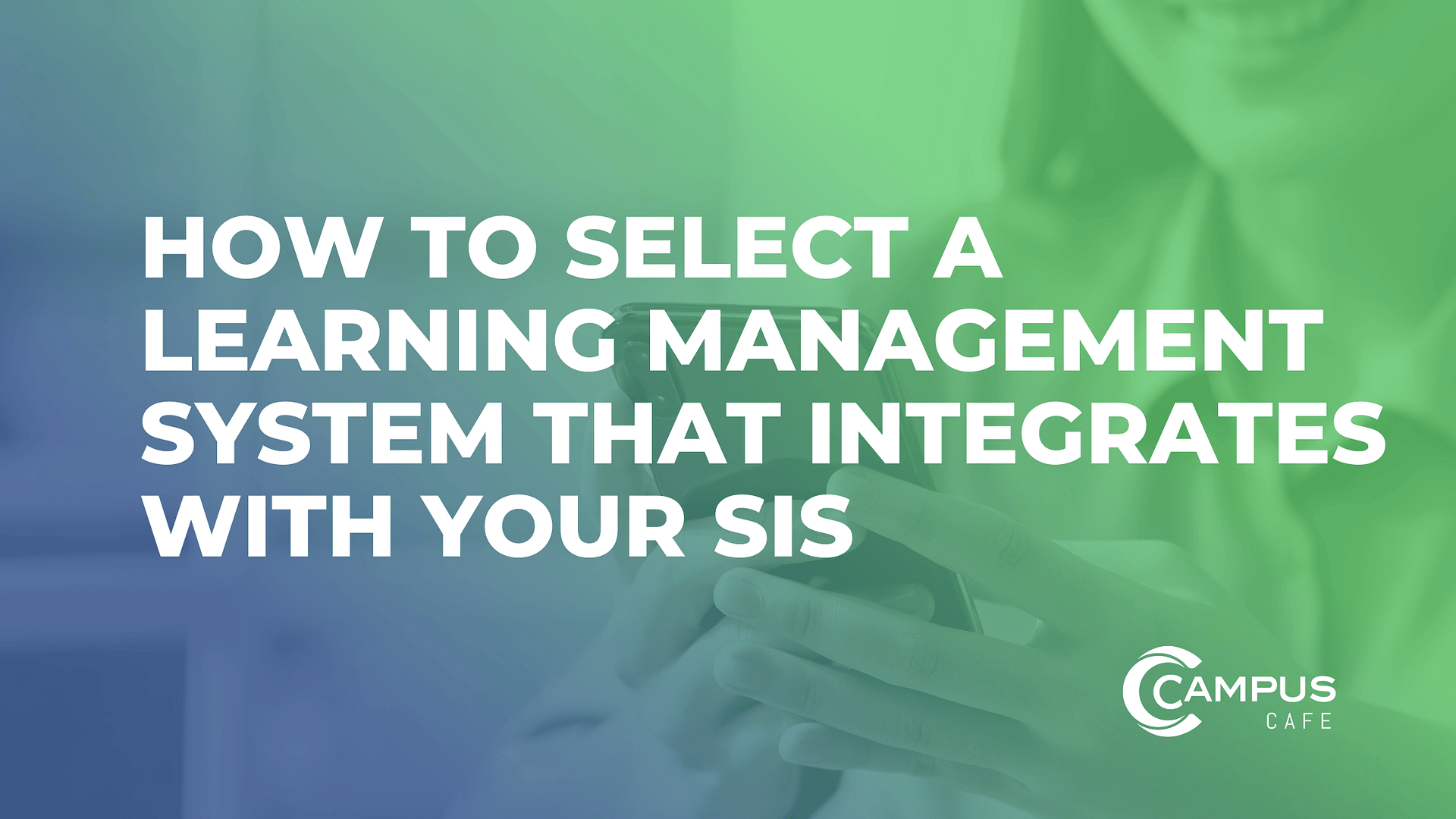Selecting the very best Discovering Administration System for Your Organization
Selecting the optimal Learning Management System (LMS) for your organization is a multifaceted decision that needs cautious factor to consider of various elements. From defining precise discovering goals that resonate with your strategic vision to reviewing individual experience, each element plays a pivotal duty in the overall performance of the system. In addition, understanding integration abilities and making sure scalability for future requirements can not be overlooked. As companies strive for performance and growth, the selection of an LMS becomes increasingly considerable. What are the essential factors to consider that can influence your decision-making procedure?
Specify Your Learning Goals
Specifying clear learning goals is essential for the successful execution of a Learning Administration System (LMS) These purposes act as a roadmap, guiding the advancement of web content, assessments, and overall educational strategies within the LMS. By developing specific, quantifiable, attainable, appropriate, and time-bound (CLEVER) goals, organizations can ensure that the learning experiences are aligned with their calculated purposes and student demands.
Efficient learning objectives must envelop what learners are anticipated to recognize or have the ability to do upon completion of a course or training program. This clearness not only aids in web content production yet additionally promotes the assessment of student progress and the total efficiency of the LMS. Singapore LMS. Additionally, distinct goals enable stakeholders to examine whether the chosen LMS capabilities and functions align with their academic goals.
Assess Customer Experience
Once finding out purposes have actually been developed, evaluating individual experience comes to be an important next step in choosing a proper Learning Administration System (LMS) User experience incorporates the total fulfillment and ease with which students engage with the system. A properly designed LMS needs to help with instinctive navigating, ensuring that users can situate courses, materials, and support easily.
To evaluate user experience, think about performing functionality testing with a depictive example of end-users. Key factors to review include the LMS's user interface layout, accessibility features, mobile compatibility, and the clearness of directions offered.
Additionally, examine the accessibility of assistance sources, such as tutorials and help facilities, which can boost the user experience. The responsiveness of consumer support is also critical; prompt aid can considerably minimize frustrations that users might experience. Ultimately, choosing an LMS that focuses on user experience not just enhances the learning procedure however also fosters greater engagement and contentment among learners.

Evaluate Integration Capabilities
Identifying the value of smooth functionality, examining combination capacities is essential when choosing a Learning Monitoring System (LMS) An efficient LMS should facilitate interoperability with existing systems, such as Human Resource Management Solution (HRMS), Client Connection Management (CRM) systems, and various other instructional tools. This integration boosts information flow, reduces management problems, and ensures a cohesive discovering atmosphere.
When evaluating an LMS, consider the kinds of integrations used. Look for Application Programs Interfaces (APIs), Solitary Sign-On (SSO) capabilities, and pre-built connectors that streamline assimilation processes. Additionally, confirm the LMS's ability to incorporate with third-party tools, such as material this link collections or assessment platforms, which can significantly enrich the understanding experience.

Take Into Consideration Scalability and Versatility
As companies evolve, the capacity of a Discovering Monitoring System (LMS) to scale and adapt ends up being significantly vital. A scalable LMS can suit growth in customer numbers, course offerings, and material without endangering performance or customer experience. As organizations broaden, whether via increased personnel, new areas, or diversified training requirements, the LMS ought to seamlessly expand alongside these changes.
Versatility is equally necessary; a reliable LMS has to support various learning modalities, such as online, combined, and mobile discovering. This versatility permits organizations to respond swiftly to arising trends in training and development, making sure that they can offer engaging and relevant knowing experiences - Learning Management System Singapore. Furthermore, the system ought to supply customizable attributes, enabling organizations to tailor the LMS to their particular demands our website and branding
In addition, an adaptable LMS should integrate easily with existing platforms and tools, facilitating a cohesive knowing environment. Hence, when picking an LMS, it is critical to analyze not just its existing capacities yet additionally its possible to adapt and grow abreast with the organization's tactical goals and evolving learning needs. This insight can dramatically boost the lasting feasibility of the selected LMS.
Review Prices and Budgeting
When reviewing an Understanding Administration System (LMS), examining costs and budgeting is vital to ensure that the financial investment straightens with the organization's strategic purposes and financial capacities. Organizations needs to begin by identifying the complete price of possession, that includes licensing fees, application expenses, maintenance, and any kind of extra expenses such as training and technical assistance.
It is important to compare different LMS alternatives, as pricing models can vary significantly among suppliers. Some systems may use a subscription-based version, while others may bill a single fee. Organizations must additionally consider the scalability of the LMS; as they grow, the price framework may alter, influencing lasting budgeting.

Verdict
Selecting a suitable Understanding Management System (LMS) is necessary for attaining organizational knowing goals. A comprehensive evaluation of customer experience, assimilation abilities, scalability, and economic factors to consider ensures that the chosen LMS lines up with tactical goals and learner requirements. By methodically resolving these variables, companies can boost finding out end read the full info here results, promote smooth procedures, and assistance future development. Inevitably, the right LMS acts as a pivotal device in cultivating a reliable understanding setting and driving business success.
Selecting the optimum Discovering Administration System (LMS) for your organization is a complex choice that requires careful factor to consider of numerous aspects.Specifying clear knowing objectives is essential for the successful execution of a Discovering Management System (LMS)Once finding out goals have been established, reviewing customer experience comes to be a crucial next action in choosing an appropriate Discovering Monitoring System (LMS)As organizations advance, the ability of a Learning Administration System (LMS) to range and adapt comes to be increasingly vital.Selecting a proper Learning Administration System (LMS) is essential for accomplishing business knowing goals.